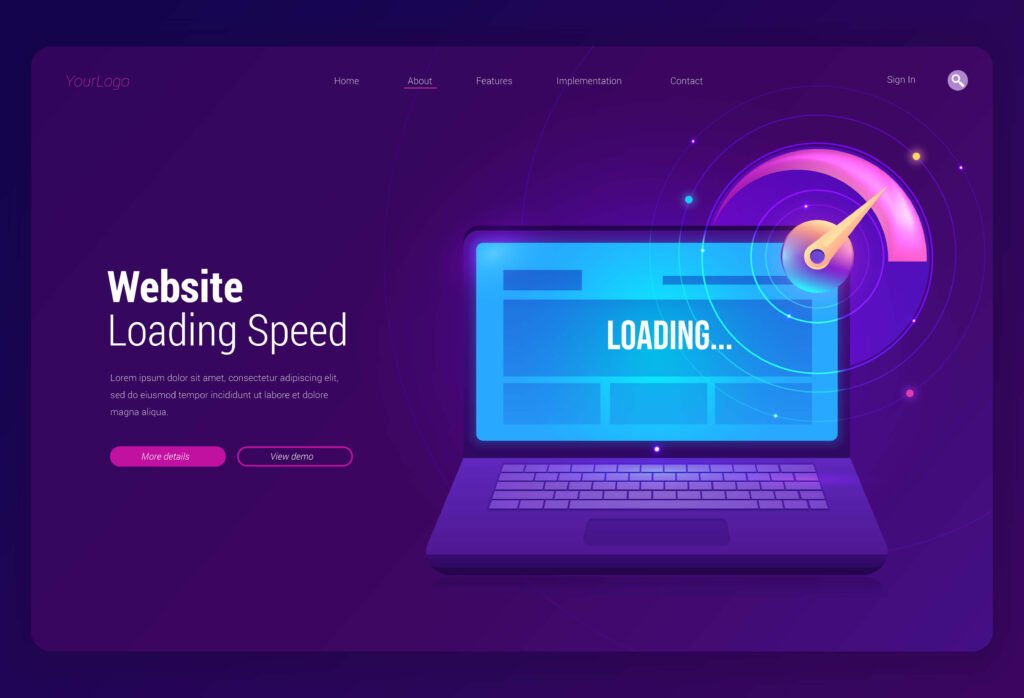
WordPress Website Speed Increase Technique
Mohaymenul Islam
Fast website loading times are essential in website and particulary in WordPress, not only for enhancing user experience but also for impacting a site’s success. Speed affects SEO rankings, conversions, and brand loyalty, making it crucial in today’s competitive online landscape.
A report by Portant reveals that users make decisions about staying on a website within seconds. Website conversion rates drop by 4.42% for every second of load time between 0 to 5 seconds. In such a competitive environment, you don’t want to lose potential customers due to slow website speed.
To boost your site’s performance, reducing the initial server response time is key. This guide covers what server response time is, its ideal duration, and the best practices to improve it.
Understanding Initial Server Response Time
Before diving into optimization strategies, it’s important to grasp what Initial Server Response Time (ISRT) is. ISRT is the time it takes for a server to respond to a request from a user’s browser. This process involves several steps:
- Request: The visitor’s browser sends a request to your server for a specific page.
- Connection: The server establishes a connection with the browser.
- Processing: The server retrieves data from the database, processes it, and assembles the requested page.
- Response: The server sends the completed page back to the browser, making it visible to the user.
Ideal Server Response Time for WordPress
An optimal server response time is crucial for web performance as it directly influences user experience and search engine rankings. The ideal server response time is typically under 200 milliseconds (0.2 seconds). Faster response times lead to quicker page rendering, reducing bounce rates and improving user engagement. Search engines like Google consider server response time an important ranking factor.
Common Causes of Slow Server Response Time in WordPress and How to Fix Them
Improving your WordPress site’s server response time is essential for better speed and efficiency. Below are common causes of slow response times and strategies to address them:
- Heavy Themes and Plugins
- Issue: Every plugin, even small ones, adds to the server’s workload, potentially slowing down response times.
- Solution: Regularly assess your plugins for redundancy, usage, and impact on performance. Consider using fewer, more efficient plugins.
- Server Stack
- Issue: The server stack, including the operating system, web server software, database server, and PHP version, plays a significant role in response time.
- Solution: Keep all components of your server stack updated to the latest stable versions, and enable HTTP/2 or HTTP/3 protocols for improved efficiency.
- Hosting & Hosting Provider
- Issue: The quality of your hosting provider and plan can significantly affect website performance.
- Solution: Choose a fast, reliable hosting service with multiple server locations, and consider using managed WordPress hosting for better speed and security.
- Domain Name System (DNS) Provider
- Issue: Slow DNS lookup times can increase server response times.
- Solution: Opt for a premium DNS service like Amazon Route 53, which offers faster performance through a wider network of servers.
- Optimizing WordPress Themes
- Issue: Heavy, inefficient themes can slow down your site.
- Solution: Use lightweight themes like Astra, GeneratePress, or Neve, and optimize them by minimizing CSS and JavaScript files and enabling browser caching.
- Database Optimization
- Issue: Unmaintained or large databases can slow down data retrieval, increasing server response time.
- Solution: Regularly clean and optimize your database, removing unnecessary data and rewriting queries for faster execution.
- Optimize Images and Files
- Issue: Large files can slow down your site, leading to longer load times.
- Solution: Compress images and minify code using plugins like Autoptimize and WP Rocket. Implement lazy loading to delay non-essential content.
- Leverage Caching
- Issue: Dynamic content processing for every request can slow down your site.
- Solution: Use caching plugins like LiteSpeed Cache, W3 Total Cache, or WP Rocket to store and serve static versions of your site, reducing server load.
- Content Delivery Network (CDN)
- Issue: Long data travel distances can slow down page loading times.
- Solution: Use a CDN like Cloudflare to load your site from the nearest server to the visitor, speeding up load times.
PHP Version Upgrades
WordPress runs on PHP, so keeping your PHP version updated is crucial for performance. Upgrading to the latest version of PHP can enhance your site’s speed and security by reducing memory usage and optimizing code execution. Always back up your site before upgrading PHP.
Monitoring and Measuring Server Response Time
Regularly measuring your server response time is key to identifying performance issues. Tools like Google PageSpeed Insights, GTmetrix, and Pingdom can help you monitor your site’s performance and provide optimization recommendations.
Additional Tips
- Regular Testing: Continuously test your site’s response time to track improvements and detect new issues.
- Use Multiple Tools: Different tools offer different insights, so use a combination to get a complete picture.
- Analyze Results Thoroughly: Pay attention to the recommendations provided by these tools and prioritize changes that will have the most significant impact.
By following these strategies, you can significantly improve your WordPress site’s initial server response time, leading to a faster, more efficient website.
Great. We’ve covered all the essential steps to help you reduce the initial server response time in WordPress. From understanding the basics to identifying causes of delays and implementing the best strategies, you now have the knowledge to enhance your site’s performance.We’ve also discussed how to monitor server response times and provided actionable tips for improvement. We hope this guide empowers you to optimize your website’s speed and increase conversions effectively.If you need professional assistance, don’t hesitate to contact Mohaymenul Islam – Web Developer & WordPress Expert. We are ready to help you implement these changes and boost your site’s performance.

